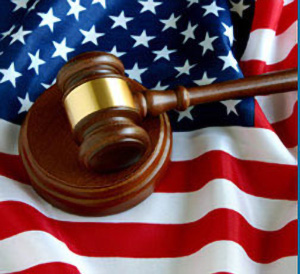October 22, 2001
by Gina Keating – Los Angeles Daily Journal
Los Angeles jurors said Friday that they suspect that an exclusive West Hollywood eatery used a nonexistent dress code and reservations policy to turn away black and Latino patrons, but the jurors could not agree on whether race was the motive.
After two weeks of deliberations, the panel found for just one of 24 plaintiffs who claimed that their civil rights were violated when Lola’s restaurant refused them entry. The jurors did not believe, however, that the winning plaintiff suffered any damages.
“There was exclusion, yes.” a white male juror, who refused to give his name, said. “[Lola’s] accuses were dismissed as bullshit The argument that arose was. ‘Was it racial in nature?”
During the sometimes-heated, three-week trial plaintiffs’ attorney Carl Douglas described his clients as “heroes … fighting for ideals [over which] so many have perished — ideals like justice, ideals like fairness, ideals like equality.”
Defense attorney Dale Goldfarb characterized the plaintiffs — lawyers, an accountant, a federal agent and other professionals — as money-hungry and deemed “silly” their demand for a minimum of $350,000 damages each.
The case alleged nine incidents of discrimination at the Fairfax Avenue restaurant between Aug. 14, 1999, and Jan. 11.2000. On Friday morning, the jury returned to the courtroom with verdicts for fewer than half of the plaintiffs: 23 African Americans and one Latina. Jenkins v. Lola’s Restaurant, BC225497 (LA Super. Ct. filed Feb. 23.2000).
The panel initially found that Lola’s had discriminated against two black PacBell employees who were not allowed to join their white and Asian colleagues for an office happy hour at the hip restaurant, known for its apple martinis.
But when Superior Court judge Aurelio Munoz polled the jury to verify the verdicts, at least one juror switched sides and caused a mistrial in one of the cases.
I’m saying right here in open court that I changed my vote.” one juror said in response to complaints from other panelists.
The jury’s last-minute vote switching also nullified seven verdicts in favor of Lola’s owner. Loren Dunsworth, and her staff, who were accused of violating the would-be patrons’ civil rights by making up excuses to keep them out of the restaurant.
“We had taken several votes and had dear decisions and when we got in there, votes were changed,” juror Linda Giles said outside the downtown courtroom. “I’m really angry about that.”
Lola’s did not violate the civil rights of five African-Americans denied entry because of supposed fire code violations and of two others who were turned away for failing to meet the restaurant’s dress code, the jury ruled. Jury foreman Brian Carino said some of the plaintiffs appeared to have “jumped on the bandwagon” to make money off the lawsuit.
“A lot of the things they did would have gotten you excluded from any other club,” Carinno said. “They were in sandals, they were in sweats, things that would have gotten you excluded from any other club.
“We did think it was racial with some people, and we voted that way.”
The plaintiffs got some satisfaction at the jury’s verdoct that Dunsworth negligently failed to codify her restaurant’s dress code and reservations policy, which were cited as reasons for barring many of the plaintiffs.
The panel, which included two African-American jurors, failed to reach any conclusion in the cases of six plaintiffs, including that of Los Angeles Senior Deputy County Counsel Nedra Jenkins.
Jenkins claimed that, when she went to the restaurant to check on month-old arrangements for her 30th birthday party the next day, she was told by Lola’s staff that the restaurant had been reserved for a last-minute party for aim stars Jennifer Aniston and Brad Pitt.
Despite the mixed verdicts, the case was a victory for the plaintiffs. Jenkins said, “because it put restaurants and clubs on notice that you can’t exclude people based on their race.”
Douglas said that he planned to retry the matters that were not decided by the jury.
“I knew this was a challenge … and I am prepared to take this challenge on anew,” he said. “And next time, we will prevail”
Goldfarb said Dunsworth, who was not in court, would not re-evaluate her policies or seek mediation with the plaintiffs to avoid another lawsuit.
“She thinks her policies are appropriate.” Goldfarb of Harrington. Foxx, Dubrow & Canter of Los Angeles said. “She thinks that this jury vindicated her. She still gets a very mixed [race] crowd.”
Both the plaintiffs and the judge mentioned the potential effects of the Sept 11 terrorist attacks on the jury’s attitudes toward racial discrimination. This is one of the issues that is before society now, so it’s not surprising that you had difficulty,” Munoz told the panel before releasing it
Jenkins contended that the plaintiffs may have gotten a better result had the attacks not happened shortly before the case got underway.
“Frankly, the timing of the trial was unfortunate, with what happened on Sept. 11,” she said. “A lot of people are thinking that racial profiling is OK. They are getting desensitized to it.”
Marshall Hennington, a Beverly Hills jury consultant who worked on the federal government’s Operation Casablanca money-laundering case, said the nation’s war rooting and uncertain economic times have made juries callous toward discrimination cases.
“When you are speaking about pain and suffering … jurors are not going to be sympathetic to you getting your feelings hurt because of a discrimination matter,” Hennington said. “People are of the mind that you need to be resilient, you need to pick yourself up by your bootstraps.”
Jurors are less attentive to details that could clinch discrimination cases, because they are distracted by their own problems and anxieties, he said.
“Right now, you have a massive amount of layoffs, you have people who are fearful of not being able to support their families,” Hennington said. “They are looking at the plaintiff and saying, “Why should that person win the lotto.”
